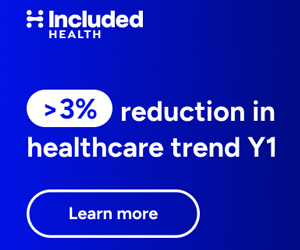Let’s take you on a quick tour of the blogosphere, and take in some reaction to Health2.0
Writing at that uber blog, the HuffPo, Esther Dyson says some very nice things and then gives a version of her really interesting summary remarks in Release 0.9: Health2.1 — Afterthoughts on the Wonderful Health 2.0 Conference
Archana Dubey at HealDeal was particularly enthralled by the virtual physician lounges of Sermo & Within3
Christopher Parks and his Change:Healthcare team were celebrating their Series A, and meeting lots of people at Health2.0 where they really liked the Organized Wisdom approach of searching user-generated content.
Jane Sarasohn-Kahn who did a marvellous job preparing for and running the first panel, shares her perspective on the whole day at her new blog Health Populi. Jane’s words “Health 2.0 is not a conference or a meeting or a thing: it’s a movement. It has to do with changing behavior, sharing, bringing all stakeholders into the process–especially people, and co-producing health care”
The Praxeon guys looked good on the search panel…and they wanted to make sure that the world knows. And why not.
The Diabetch blog has a nice summary of my opening concept, although I’m not sure I’m the “founder” of the movement—Indu and I are perhaps hosts of a conversation bazzar.
Fard Johnmar at HealthCareVox has a brief piece on the conference. Look for more great stuff from Fard on his excellent interview series “The Digital Health Revolution”
Blaine Anderson and the PointClear Solutions folks captured the first part of the day well on their blog
Health care law blogger Bob Coffield has a long and very detailed post on the whole conference, including a summary of his unconference table. There were 15 of those, BTW!
#1 health care blogger Amy Tenderich not only ran a great panel on Social Media (of which her blog Diabetes mine is perhaps the best pure blog example) but also summarized her take on the whole day, in a voice aimed at patients.
Joerg Schwarz from Sun had some interesting comments on what was there (user-generated healthcare) and what wasnt really there—connections to back end data systems.
Jack Beaudoin from Healthcare IT News blog wins the prize for best title! H may have thought that the opening video was a bit self-congratulory, but he seems to have like the Rock’n’Roll hipster atmosphere. I guess when one host is a failed rock guitarist and the other one is married to a successful hipster DJ & musician, that’s what you get!
RHRVentures blog liked what they saw too.
Tobin & Rebecca from iMedExchange sponsored the unconference (Thanks guys!) and are looking forward to even more of a physician focus next time.
Francine Hardaway at Arizona Health Futures has a great run down of the day—Perhaps most interesting is that her unconference lunch table about data liquidity had Adam Bosworth involved. His view? If we admit the patient really owns the data, then everything else will flow from that.
Usable Markets has my second favorite title about the conference Health Hoopla
That lot should get you started!











